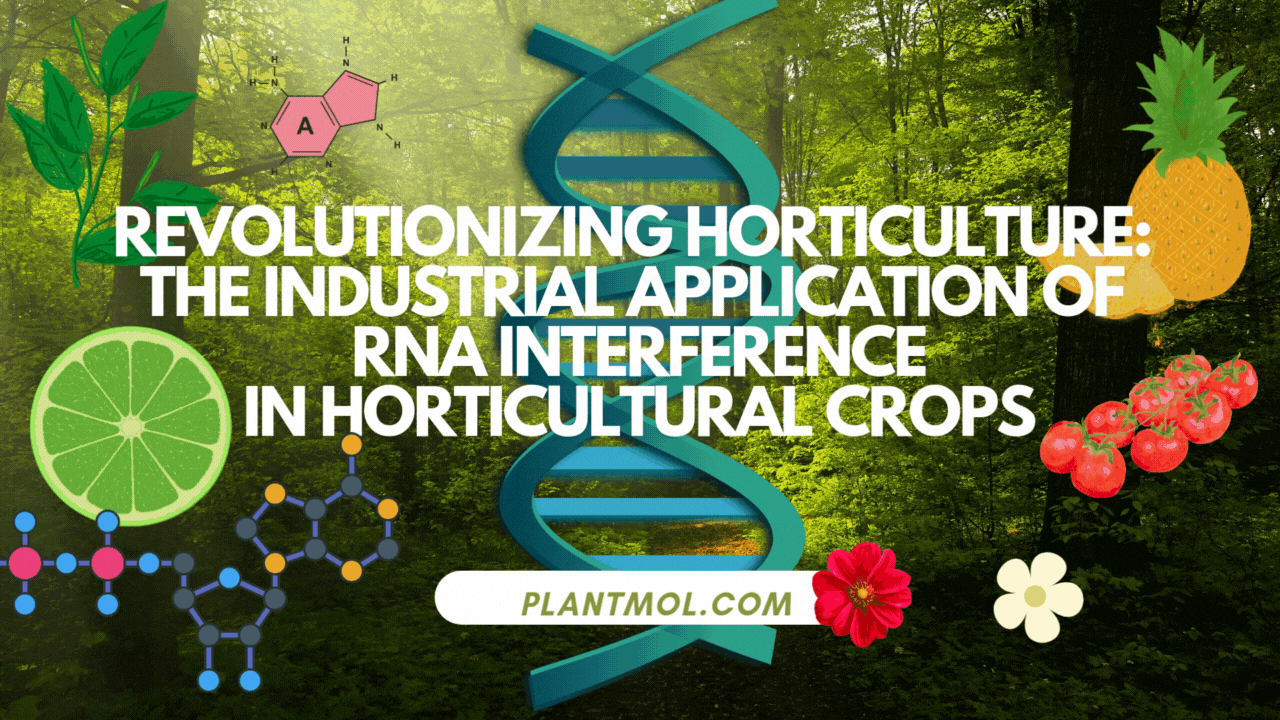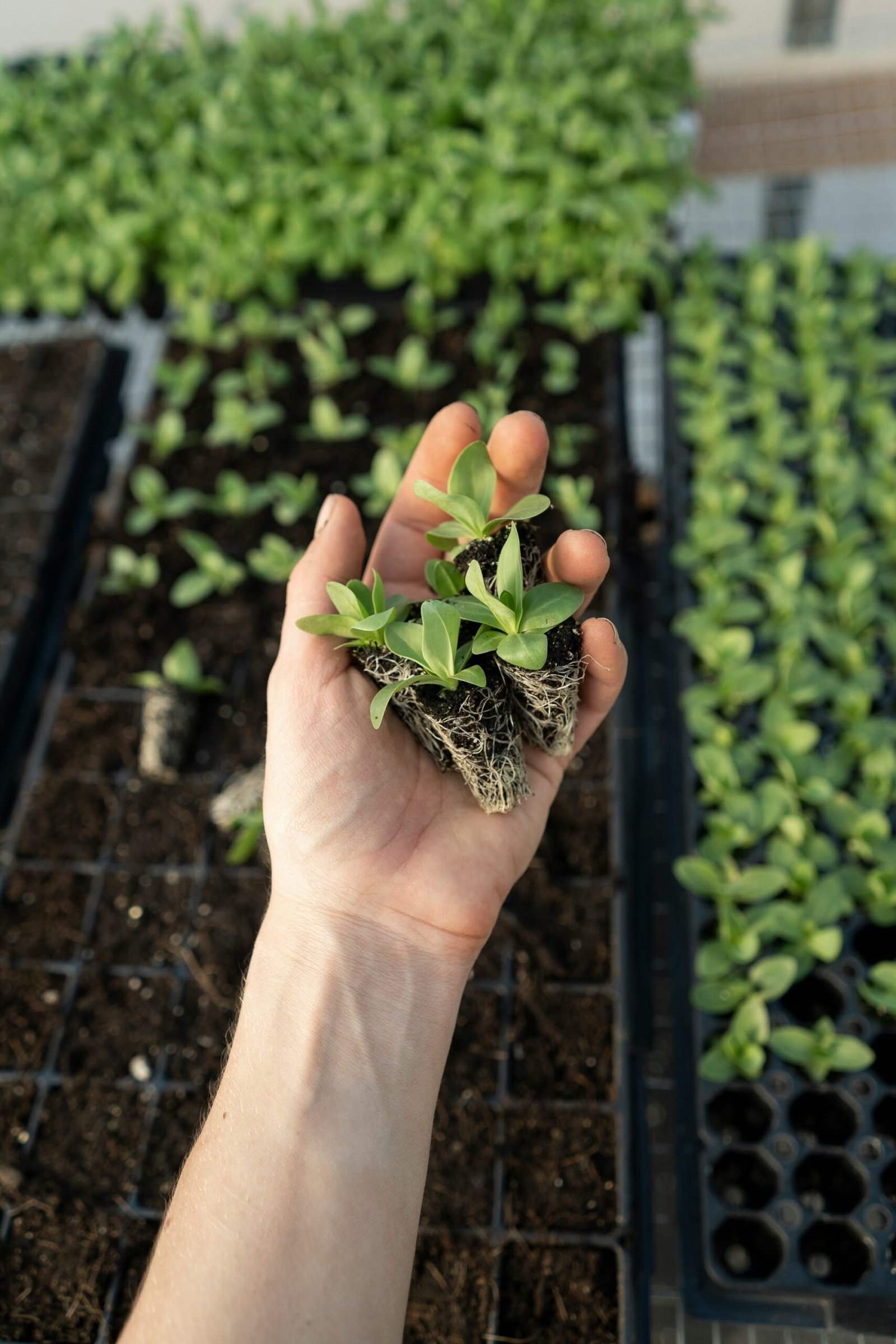
RNAi and Horticulture
Understanding RNAi Technology
RNA interference (RNAi) is a powerful biological process that plays a crucial role in regulating gene expression in various organisms, including plants. The essence of RNAi lies in its ability to inhibit the expression of specific genes by utilizing small RNA molecules, which serves as a fundamental mechanism for controlling gene activity. This process begins when double-stranded RNA (dsRNA) molecules are introduced into the cell, either naturally or artificially. Once inside the cell, the dsRNA is recognized and processed by an enzyme known as Dicer, which subsequently cleaves it into short interfering RNAs (siRNAs).
These siRNAs are typically about 21-25 nucleotides in length and serve as guides in the RNAi pathway. The siRNAs then associate with a multi-protein complex called the RNA-induced silencing complex (RISC). Within the RISC, one strand of the siRNA is retained, while the complementary strand is discarded. This single-stranded RNA can then bind to the messenger RNA (mRNA) of target genes that exhibit sequence homology. As a result, the target mRNA is either degraded or its translation is inhibited, effectively silencing the gene.
The significance of RNAi in plant science cannot be overstated. By allowing precise control over gene expression, RNAi has emerged as an essential tool in genetic research and crop improvement. Researchers can use RNAi technology to produce plants with desirable traits, enhance resistance to pests and diseases, and improve stress tolerance. Moreover, RNAi provides a unique bridge between molecular biology and practical agricultural applications, enabling scientists to develop innovative strategies for enhancing crop yield and quality. As the potential of RNAi continues to be explored, its role in revolutionizing horticulture becomes increasingly evident, impacting how we approach challenges in crop management and sustainability in agricultural practices.
Benefits of RNAi in Horticultural Crops
RNA interference (RNAi) technology has emerged as a revolutionary tool in horticulture, providing numerous benefits that significantly enhance crop efficiency and sustainability. One of the most impactful advantages of RNAi is its ability to improve disease resistance in horticultural crops. By targeting specific genes responsible for susceptibility, researchers can develop transgenic plants with enhanced resilience to various pathogens, thereby reducing the need for chemical pesticides. For example, RNAi has been used to bolster the resistance of tomato plants against viral infections, resulting in healthier crops and reduced crop loss.
In addition to disease resistance, RNAi plays a crucial role in enhancing the nutritional content of horticultural crops. By silencing genes associated with low nutritional value or undesirable characteristics, scientists can produce varieties that offer improved health benefits. A notable instance can be seen in the biofortification of fruits and vegetables, where RNAi has been employed to increase the levels of essential vitamins and minerals. This advancement not only promotes better health for consumers but also aligns with global efforts to combat malnutrition.
Furthermore, stress tolerance is another critical benefit brought about by the application of RNAi in horticultural crops. Plants often encounter abiotic stresses such as drought, salinity, and extreme temperatures, which can severely impact growth and yield. RNAi technology enables the development of crops that can better withstand these stresses, ensuring consistent production even under challenging environmental conditions. For instance, researchers have successfully introduced RNAi-based traits in leafy greens that enhance their ability to survive in arid conditions.
Ultimately, the integration of RNA interference in horticultural practices not only leads to higher yields but also promotes sustainable agricultural practices through reduced reliance on chemical inputs, contributing to a more resilient food system.
Case Studies: RNAi in Action
RNA interference (RNAi) technology has emerged as a game-changer in horticulture, providing innovative solutions to age-old agricultural challenges. Several case studies across different horticultural crops showcase the successful implementation of RNAi, demonstrating its potential in pest management and crop enhancement.
One notable example is the introduction of RNAi in the control of the Tomato yellow leaf curl virus (TYLCV) in tomato crops. Researchers developed transgenic tomato plants that expressed small interfering RNA (siRNA) targeting the viral genome. This approach significantly reduced virus replication, resulting in enhanced resistance against TYLCV. The results indicated not only improved plant health but also increased yields, valuable for both growers and the agricultural market.
Another case study involves the use of RNAi to combat insect pests, specifically targeting the fall armyworm (Spodoptera frugiperda) in maize and other crops. By employing a RNAi-based biopesticide, scientists successfully designed a harmless spray that delivers double-stranded RNA (dsRNA) directly to the larvae. This dsRNA specifically silenced essential genes in the pests, leading to reduced growth and development, ultimately decreasing crop damage. This innovative pest management strategy resulted in cleaner yields, reduced pesticide usage, and a lower environmental footprint.
Additionally, RNAi has shown effectiveness in enhancing the quality of horticultural produce. For instance, a study aimed at increasing the shelf life of strawberries utilized RNAi to down-regulate ethylene production genes. The outcome was astonishing: strawberries demonstrated prolonged freshness post-harvest, which is crucial for commercial viability in the competitive fruit market.
These case studies emphasize the practical benefits of RNAi technology in horticulture, illustrating its potential to address urgent challenges effectively. The ongoing research and development within this field suggest a promising future for horticultural applications, paving the way for more resilient and productive cropping systems.
Future Perspectives and Challenges
The future of RNA interference (RNAi) technology in horticulture is poised to undergo significant advancements, potentially revolutionizing crop improvement methodologies. One of the primary areas of focus is enhancing the efficacy and specificity of RNAi applications, which could lead to the development of horticultural crops with improved resistance to pests and diseases. This specificity is crucial, as it allows for targeted modifications without undesirable side effects on non-target organisms, thereby promoting biodiversity within ecosystems.
Moreover, ongoing research is expected to uncover broader applications of RNAi beyond pest management. These include enhancing nutritional profiles, increasing yield efficiency, and improving stress tolerance in horticultural crops. Integrating RNAi with existing biotechnological innovations, such as CRISPR, could also pave the way for more sophisticated genetic enhancements, enabling horticulturists to tackle the challenges posed by climate change and food security.
However, the adoption of RNAi technology in horticulture is not without its challenges. Regulatory hurdles remain a significant concern, as many countries have stringent guidelines governing genetically modified organisms (GMOs). Ensuring compliance while maintaining innovation is crucial for the successful integration of RNAi in commercial horticulture. Furthermore, public perception plays a pivotal role in the acceptance of RNAi-modified crops. Educating consumers about the safety, efficacy, and benefits of RNAi can help mitigate resistance and promote understanding of the technology’s potential to contribute to sustainable agriculture.
Lastly, further research is essential to comprehend the long-term ecological impacts of RNAi applications in horticultural systems fully. Continued collaboration among scientists, agronomists, and policy-makers will be vital to address these challenges and to optimize RNAi technology’s role in enhancing the future of horticulture.
For basic concepts and theory of RNAi
Molecular Warfare: How Plants Utilize Post-Transcriptional Gene Silencing to Combat Viral Invaders








